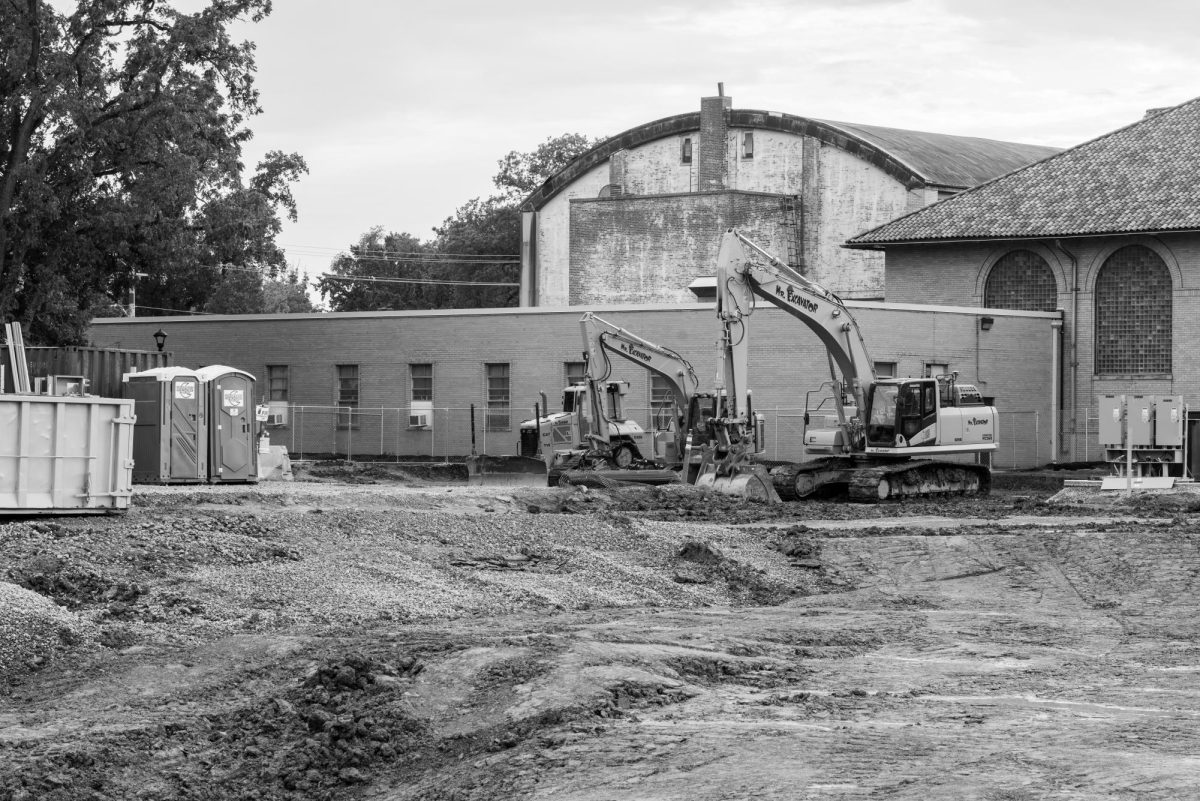Last week, the Review reported on the construction of Oberlin’s new residence hall on Woodland Street. (“Construction Begins on Woodland Street; Off-Campus Housing to be Phased Out,” The Oberlin Review, Sept. 8, 2023). One troubling aspect of this project is the creation of 201 new off-street parking spaces. The City of Oberlin’s zoning code, like many across the country, features minimum parking requirements for both residential and commercial buildings. The relevant section for the new dormitory is Section 1349.03, Table 3, which mandates one parking space for every two beds. In accordance with regulations from the same section, these 201 new spots will cover over 30,000 square feet of land — more than half the size of an American football field. The actual area will be even higher than this due to the aisles between rows of spots.
This new parking will not be a positive addition to our campus. Asphalt is an impermeable surface, worsening flooding and surface water pollution. Pavement also reflects the sun’s heat, increasing air temperatures on hot days. Aesthetically, the new lots will make campus a grayer, duller space. Fortunately, these parking requirements can be waived. Provision 1349.01(e) allows for the college to receive a variance if it can demonstrate to the Planning Commission that “the nature of the [building’s] use requires fewer spaces than required herein.”
That is surely the case. Oberlin is a small town that is easily traversed by foot or bicycle. Most students do not need — and should not be encouraged — to bring cars to campus. The City and College’s EV CarShare program and the College’s newly launched Obie Express are viable and cheap ways to get out of Oberlin. The ideal car-to-student ratio is far lower than what the City’s parking minimums suggest.
At a larger scale, Oberlin College should not contribute to a culture of car dependency. The College must offer a better vision for the broader world. Oberlin’s pedestrian and bicycle friendly campus demonstrates that staggering crash fatalities and emission rates do not need to be inherent to modern life. The planned parking lots, however, would send the opposite message. The College should seek a zoning variance to avoid their construction. The City of Oberlin, for its part, should join a growing wave of American cities and repeal its parking minimums. Oberlin is a rare place in America where our urban structure broadly privileges people over cars. Let’s keep it that way.



